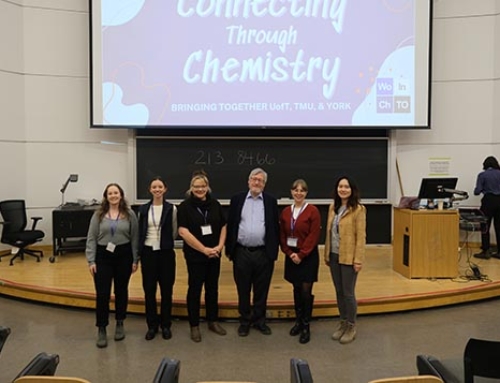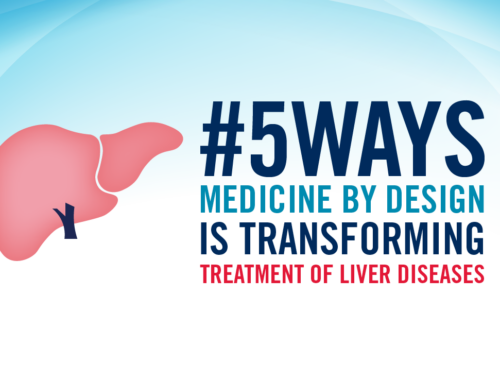
Omar F. Khan, who specializes in immunoengineering, recently joined the Institute of Biomedical Engineering at U of T. Khan is a nanoparticles expert who was recruited with support from Medicine by Design’s New Investigator program.
Starting a new faculty position can be challenging at any time but doing so during a global pandemic adds a whole new layer of complexity — especially when there’s a cross-border relocation and a new style of teaching to think about.
But Omar F. Khan, who recently became an assistant professor at the Institute of Biomedical Engineering at the University of Toronto (U of T), says he was eager to make the move back to Toronto last spring with support from Medicine by Design’s New Investigator program, even at the height of the COVID-19 pandemic.
“After being away from Canada for nearly a decade, I was excited to return and help build a tech hub for applied nucleic acid research,” says Khan, who specializes in immunoengineering. “Medicine by Design, the Institute of Biomedical Engineering and the University Health Network were primary factors in my decision. This remarkable confluence of engineering researchers, scientists, clinicians, policy makers and end users makes Toronto an ideal environment to create new and great things.”
Khan, who completed his PhD at U of T in the lab of Michael Sefton, executive director of Medicine by Design, recently returned to Toronto after 10 years in the United States.
After his PhD, Khan moved to the Massachusetts Institute of Technology (MIT) as a post-doctoral associate in the labs of professors Daniel G. Anderson and Robert Langer. Then Khan spun his research out into a startup company, where he became scientific founder and chief scientist, called Tiba Biotech, which centres around a programmable RNA vaccine platform for the rapid production of a new generation of safer vaccines against multiple diseases. Then, he moved on to a second startup based on a technology he co-developed in the Anderson and Langer labs.
Khan’s regenerative medicine approach combines nanotechnology, tissue engineering and targeted drug delivery to treat damaged tissue and organs.
Khan’s lab at U of T works with nanomaterials — very small chemical materials that coordinate the delivery of nucleic acids, which are information-carrying molecules in cells that silence, regulate, express or help edit genes of interest. His approach is to combine these nucleic acids’ distinctive effects to control complex diseases caused by multiple aberrant genes that cannot be treated with small molecule drugs. Khan’s lab is currently applying their RNA nanotechnologies to the treatment of chronic inflammation, autoimmune diseases, cancer immunotherapy and the clearance of viruses in incurable infections.
Soon Khan, who has been busy since his arrival in Toronto with starting a lab, writing grant applications and hiring students, will also begin teaching. Beginning his first full academic year during these dynamic times is humbling, he says.
“2020 has been a year of challenges, introspection, action and change. Overall, I feel optimistic. I’m also excited because I have been fortunate to recruit a diverse team of talented, energetic people. I can’t wait to see what we can achieve together.”
Khan was recruited by Medicine by Design — with collaboration from U of T’s Institute of Biomedical Engineering —as part of its New Investigator program. The program supports Medicine by Design’s mandate to renew and diversify scientific leadership in stem cell and regenerative medicine at U of T and its affiliated hospitals.
The network of people makes being part of Medicine by Design so valuable, says Khan. “In the short time since I started, I have been amazed with all of the insightful conversations and my early collaborations. This is what makes applied science and engineering so much fun — working with inquisitive people to build new technology that helps others.”
About Medicine by Design
Funded by a $114-million grant from the Canada First Research Excellence Fund, Medicine by Design brings together more than 130 principal investigators at the University of Toronto and its affiliated hospitals to work at the convergence of engineering, medicine and science. It builds on decades of made-in-Canada excellence in regenerative medicine dating back to the discovery of stem cells in the early 1960s by Toronto researchers Drs. James Till and Ernest McCulloch.






